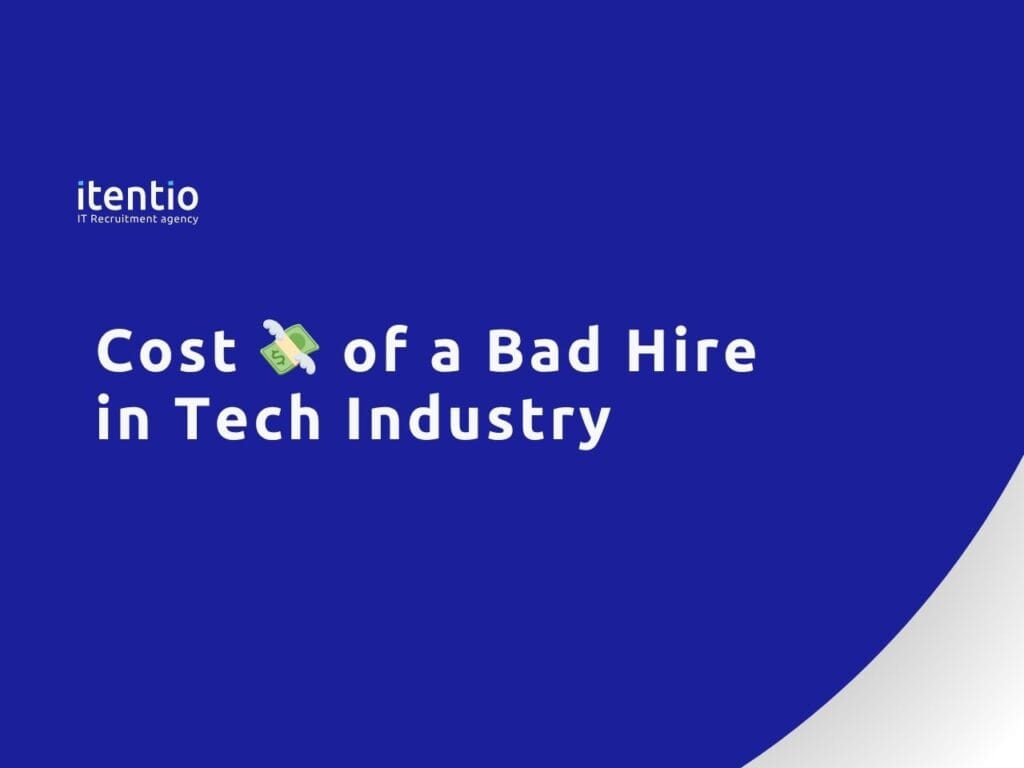IT recruiter plays a crucial role in the success of any organization. Their ability to attract, assess, and hire top talent can significantly impact a company’s growth and competitiveness. Effective IT recruiter possesses diverse skills, wears many hats, and plays many roles, which must be mastered to succeed and be efficient. This article will explore fifteen hats the best recruiters wear and how these skills contribute to their effectiveness.
Today, the IT recruiter is a professional who undertakes several crucial responsibilities. Let’s outline these roles for your better understanding.
Researcher: IT Recruiter is Uncovering Hidden Gems
Recruiters wearing the Researcher Hat possess advanced search techniques and extensive industry knowledge to uncover exceptional talent. They actively utilize talent pools, online platforms, and industry networks, leveraging their skills to identify promising candidates who may need to seek new opportunities actively.
By using their research abilities, recruiters discover hidden gems that may have gone unnoticed. Through proactive exploration of niche platforms, engaging with industry professionals, and employing advanced search techniques, recruiters access a vast talent pool and attract candidates with the desired skills and potential.
Analyst: Data-Driven Decision Making
Analytical skills are obligatory for any IT recruiter. Recruiters make data-driven decisions throughout the recruitment process. It involves constant monitoring of the current situation, considering the recruiting funnel’s value. They establish key performance indicators (KPIs) to measure their success, utilize applicant tracking systems (ATS) to track candidate progress and analyze metrics such as application rates, source of hire, time to hire, etc.
By leveraging data analysis techniques, recruiters gain insights into their recruitment strategies and identify areas for improvement. They also stay updated on industry trends and emerging technologies, ensuring their recruitment efforts align with the organization’s evolving needs. By analyzing data and utilizing predictive analytics, recruiters make informed choices, optimize their recruitment strategies, and improve the work’s overall effectiveness.
Networker: IT Recruiter is Building Connections
IT Recruiters understand the value of building and nurturing strong connections within their industry. They actively engage with professionals, attend industry events, and leverage online platforms to expand their network. By fostering meaningful relationships, recruiters tap into a diverse talent pool and stay connected with industry trends. They also utilize their existing network to seek referrals and recommendations for potential candidates and clients, expanding their reach.
Effective networkers maintain regular communication, share valuable insights, and support their connections, building trust and rapport. By actively engaging in networking opportunities and leveraging existing relationships, recruiters strengthen their professional community and attract top talent. The principle of proactive networking for a recruiter is simple – There’s No Better Time to Network than Right Now.
Marketing Manager: Building or Strengthening an Employer Brand
As an IT recruiter, it is vital to understand the significance of building a strong employer brand to attract top talent. They go beyond traditional job descriptions, using storytelling techniques to showcase the organization’s unique value proposition. By crafting compelling narratives highlighting the company culture, mission, and benefits, recruiters position the employer brand as attractive and desirable to potential candidates. They also leverage various channels and platforms, such as the organization’s career website and social media, to promote the brand and engage with the target audience. Through effective marketing strategies, recruiters create a positive and compelling image of the organization, attracting candidates who align with its values and aspirations.
IT recruiters leverage storytelling and various marketing channels to build a strong employer brand. They create an attractive image that resonates with potential candidates by highlighting the organization’s culture, mission, and benefits. Through strategic marketing efforts, recruiters successfully position the organization as an employer of choice, attracting top talent that aligns with the company’s values and aspirations.
Sales Manager: Prospecting and closing deals
Similar to sales managers, recruiters with this hat utilize strategic sales techniques to identify potential candidates, build relationships, and close deals. They employ persuasive communication skills to highlight the organization’s benefits and growth opportunities. By effectively selling the possibilities and working with candidates’ rejections and concerns, recruiters influence candidates to choose the organization as candidates’ further employer.
Recruiters also focus on building long-term relationships with candidates and organizations, similar to account managers in sales. They maintain regular contact, provide support throughout recruitment, and nurture relationships even after placement. By cultivating strong relationships with candidates, recruiters increase the likelihood of successful hires and build a talent pipeline for future needs.
Project Manager: Take utmost care of each recruitment step
Recruiters excel at managing the end-to-end recruitment process, from sourcing to onboarding. They apply project management principles to ensure smooth and efficient operations. They create project plans, set timelines, and allocate resources effectively to meet hiring goals.
Like project managers, recruiters are skilled at coordinating multiple tasks and stakeholders. They collaborate with hiring managers, HR teams, and external partners to align recruitment strategies and ensure seamless execution. They track progress, monitor metrics, and adjust as needed to keep the recruitment process on track. They prioritize tasks, document each step of the recruitment process, and maintain comprehensive records of candidate information. By effectively planning, executing, and monitoring the recruitment process, these recruiters contribute to successful hires and the overall effectiveness of the talent acquisition function.
Product Owner/System Administrator/QA Engineer
This technically savvy role appears here, as the capabilities of Microsoft Excel/Office 365/Google Docs or any existing organizations’ ATS systems might need automation and integrations with other platforms. Sometimes it is the recruiter’s responsibility to ensure the smooth integration of new systems (e.g., new ATS) within the company. They conduct thorough testing and checks to ensure the new system functions seamlessly. They identify and resolve any issues or bugs during the integration process.
They develop training materials, conduct workshops, and address user concerns or questions. By offering support and guidance, they ensure the smooth adoption of the new systems and the organization’s overall efficiency.
Copywriter/Storyteller: Engaging through narratives
Recruiters captivate candidates through compelling narratives. They understand that candidates seek a deeper understanding of the organization and its values beyond job descriptions. By crafting narratives that resonate with candidates’ aspirations, recruiters create meaningful connections.
They showcase real-life examples of employee successes, the organization’s journey, and its impact, creating an authentic and compelling vision of working for the organization. Through storytelling, recruiters evoke emotions and make an accurate picture, inspiring candidates to consider joining the organization. Through compelling storytelling, recruiters establish meaningful connections and attract top talent.
Detective: IT Recruiter uncovering the truth
Recruiters conduct thorough investigations during the recruitment process. They ask probing questions, conduct reference checks, and perform background screenings to ensure candidates’ qualifications and verify their claims. Recruiters mitigate the risks of hiring by thoroughly examining a candidate’s background to ensure they meet the organization’s standards.
Conducting thorough interviews, reference checks, and background screenings, recruiters gather essential information to validate candidates’ claims and assess their fit for the organization. The Detective Hat enables recruiters to ensure the right fit for the organization.
Psychologist: Unveiling potential and fit through psychology
Recruiters should possess an understanding of human behavior and psychological principles. They utilize this knowledge to assess candidates’ personalities, motivations, and cultural fit within the organization. Recruiters establish trust and encourage open communication by employing psychological assessments, behavioral interviews, active listening techniques, empathy, and rapport-building strategies. They gain insights into candidates’ emotional intelligence, problem-solving abilities, and interpersonal skills and can assess candidates’ suitability for the organization and specific roles.
By creating a supportive environment and addressing candidates’ psychological needs, recruiters contribute to positive candidate experiences and successful placements.
Negotiator: IT Recruiter is crafting win-win deals
IT Recruiters should possess strong negotiation skills to secure the best talent. They conduct thorough research on market conditions and compensation benchmarks to inform their negotiation strategy. They navigate salary discussions, benefits packages, and employment terms to reach mutually beneficial agreements. By understanding the needs of both parties – the organization and the candidate, recruiters find the right balance that satisfies each side.
By actively listening to the candidate’s needs and highlighting the unique value the organization offers, recruiters create a positive negotiation atmosphere. Skilled negotiators find creative solutions and compromise to bridge gaps and ensure a win-win outcome. Through effective negotiation, recruiters secure the best deals that align with the organization’s and the candidate’s expectations. It remains to add that the IT recruiter considers the relationship between the candidate and the company not in the short term but in the long term.
Matchmaker: IT Recruiter is ensuring cultural fit
Recruiters wearing the Matchmaker Hat focus on ensuring a strong cultural fit between candidates and the organization. They go beyond evaluating skills and qualifications, assessing a candidate’s alignment with the company’s values, work culture, and team dynamics. Recruiters facilitate prosperous and harmonious placements by considering the long-term career goals of candidates and providing guidance to hiring managers.
They act as a bridge between candidates and hiring managers, fostering communication and managing expectations. By supporting candidates throughout the process and gathering feedback, recruiters contribute to long-lasting relationships and successful onboarding. Through their role as matchmakers, recruiters create a positive, aligned work environment where employees can thrive, collaborate, and contribute effectively. A robust cultural fit leads to high-performing teams, increasing employee engagement and overall organizational success.
Innovator: Embracing New Technologies
It’s about constantly looking for new recruiting, sourcing, and process automation opportunities. Recruiters adopt new technologies to enhance the recruitment process. They leverage applicant tracking systems (ATS), AI-powered tools, and automation to streamline operations and improve efficiency. But it is essential to filter the technologies and understand what is an accurate and relevant tool that will come in handy.
Recruiters optimize their strategies by staying informed about emerging technologies and utilizing data analytics. They use video interviewing platforms for remote assessments and incorporate AI-powered tools for tasks like resume parsing and candidate sourcing. By embracing innovation, recruiters attract top talent and make data-driven decisions. The Innovator Hat empowers recruiters to adapt and succeed in a rapidly evolving recruitment landscape.
Financial, tax, and housing consultant for relocating candidates
Many companies have relocation programs that serve them to expand the talent pool and attract IT professionals from different regions. The recruiter can guide relocating candidates on financial considerations such as cost of living, taxes, and currency exchange rates. They can help candidates understand the financial implications of relocation and offer advice on budgeting and financial planning.
Like housing consultants, recruiters can help with insights into housing options, rental markets, and local regulations. They assist candidates in finding suitable accommodations, understanding lease agreements, and navigating the new location’s housing process. They also provide information on tax obligations, including local tax laws, filing requirements, and any tax benefits or incentives available to expatriates. They ensure candidates are aware of their tax responsibilities and help them navigate the tax landscape of the new country.
By offering this support, recruiters contribute to a smooth and successful relocation process for candidates, helping them settle into their new environment and contribute effectively to the organization.
Advisor: Guiding Candidates and Hiring Managers
Recruiters serve as trusted advisors to both candidates and hiring managers. They provide guidance, support, and insights to ensure a smooth and successful hiring experience for all parties involved. By understanding the needs of candidates, recruiters provide information, answer questions, and offer support. They collaborate closely with hiring managers, define job requirements, develop compelling job descriptions, and create interview assessments that align with the organization’s needs. Recruiters enhance the quality of candidate assessment and contribute to successful placements.
By acting as a bridge between candidates and hiring managers, recruiters facilitate effective communication and manage expectations. They provide timely updates, address any concerns or questions, and ensure that both parties understand the process and timeline clearly. Through their advisory role, recruiters contribute to positive relationships and successful placements. Even post-placement, they follow up with candidates during onboarding to ensure smooth organizational transition
Conclusion
In conclusion, the role of a recruiter is multifaceted, requiring a diverse skill set and the ability to adapt to various situations. The best recruiters wear multiple hats, seamlessly transitioning between research, marketing, analysis, networking, storytelling, investigation, negotiation, matchmaking, innovation, and advisory roles. By mastering these skills, recruiters can effectively attract, assess, and hire the top talent that drives organizational success.
Please share other roles you have as an IT recruiter in the comments on our social media pages.
At Itentio IT Recruitment, we understand the importance of exceptional recruitment practices in driving organizational success. Our recruiters consistently deliver outstanding results by embodying the abovementioned roles outlined in this article. Whether you are a company looking to attract top talent or a candidate searching for the perfect opportunity, we are here to guide you every step of the way. Allow Itentio IT Recruitment to be your strategic partner in talent acquisition and experience recruitment excellence like never before.



